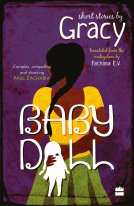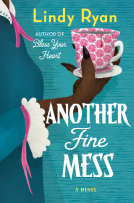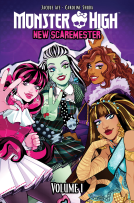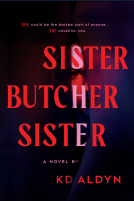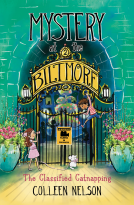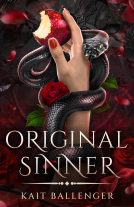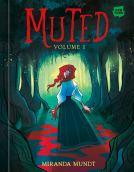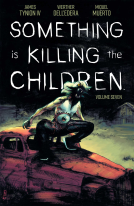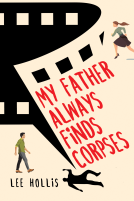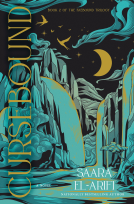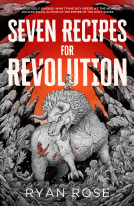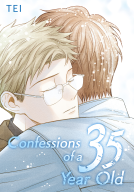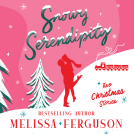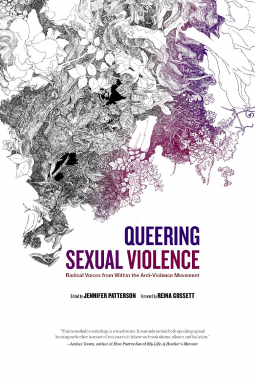
Queering Sexual Violence
Radical Voices from Within the Anti-Violence Movement
by Jennifer Patterson
This title was previously available on NetGalley and is now archived.
Send NetGalley books directly to your Kindle or Kindle app
1
To read on a Kindle or Kindle app, please add kindle@netgalley.com as an approved email address to receive files in your Amazon account. Click here for step-by-step instructions.
2
Also find your Kindle email address within your Amazon account, and enter it here.
Pub Date Apr 22 2016 | Archive Date Dec 13 2019
Riverdale Avenue Books | Magnus
Description
This thirty-seven piece collection disrupts the mainstream conversations about sexual violence and connects them to disability justice, sex worker rights, healing justice, racial justice, gender self-determination, queer & trans liberation and prison industrial complex abolition through reflections, personal narrative, and strategies for resistance and healing. Where systems, institutions, families, communities and partners have failed them, this collection lifts them up, honors a multitude of lived experiences and shares the radical work that is being done outside mainstream anti-violence and the non-profit industrial complex.
Available Editions
| EDITION | Other Format |
| ISBN | 9781626012721 |
| PRICE | $9.99 (USD) |
Links
Featured Reviews
 liana p, Reviewer
liana p, Reviewer
Have you ever read a book that pleasantly surprised you, one that turned out to be something totally different that what you expected? Queering sexual violence is not that kind of book. Its uniqueness and beauty can be found precisely in the fact that it is exactly what it promises to be: a collection of raw, brutally honest essays on violence, abuse and how their cycles overlap or meet or “define” the spectrum of gender identity and sexuality.
Throughout the course of the book abuse is widely explored; its aspects, its forms, its consequences and variations. None of the authors shy away from it, each of them exploring a different side of it, or a different perspective. If you expect to find a book that feeds into the male/female, gay/straight or victim/perpetrator dichotomy and binary, back away now! The “co-authors” of the book explore and challenge stereotypes and views that may not sit well with many people at first, spilling truths that are hard to shallow.
I would not like to dwell on a specific essay or author, since I found all of them to be equally important and vital in terms of understanding violence within and in relation to the queer community. Family, forgiveness, recovery and understanding are recurring topics of conversation throughout the length of the book. Race, ethnicity, religion, disability, class and work status are also mentioned as factors that affect the reality of abuse many queer people are facing. Queerness and abuse are not studied separately, but in relation to each other, which brings up a very controversial topic of conversation: violence and abuse in relationships between lgbt+ people and how often it occurs. And when it does, should it be reported?
I know some of you may find the above question bizarre; of course it should be reported! And I couldn’t agree more. Violence in any way, shape or form and within any kind of relationship is unacceptable and should not go unnoticed. However, lgbt+ people hiding or not reporting incidents of abuse, in fear of painting the community in a negative light or feeding into negative stereotypes is not unheard of. The marginalization and oppression of lgbt+ people is a key factor on these essays, essays that make sure to put trans women, bisexuals and gender non-conforming people(among others) front and center, giving a voice to groups that are often neglected or oppressed even within their own communities and safe spaces.
While I found this book to be a very educational and important one, I would advise you to not got into it lightly. The sheer nature of the topic the author chose to explore, makes it a tough one and the brutal, unyielding honesty of each and every one of its essays make it even tougher. I found myself in the verge of tears, disgusted or frightened more than once, so, please, approach it with caution.
*An ARCopy was provided via Netgalley in exchange of an honest review*
**Trigger warnings for: ab*se and r*pe**
*** I used the term queer as an umbrella term, because it’s a term I, myself , feel comfortable using and because it was also the word the author used in the book***
Queering sexual violence is a collection of essays, written by members of the LGBT+ (queer) community, that seek to challenge current ideas of; sexual identity, sex, sexual violence, and the current structure of society. Each essay, in its own unique way, speaks of the ways that certain individuals are excluded from both; the mechanisms in place to help survivors of sexual abuse, and the theoretical framework that support these organisations. They speak, poignantly, of; their experiences of violence, the effects of that violence on their lives, their attempts to seek help, the battles to have their pain acknowledged, and the ways that they have found their own unique path to healing.
The writers challenge the way in which we see certain issues and the ways that these issues interact; uncoupling some concepts while highlighting the connection between others. Those who survived sexual abuse firmly state that, while their experiences have shaped their life and sexual choices, they choice of sexuality cannot be wholly explained by their childhood experience of violence. Other writers seek to force the readers to see connections between violence to the individual body and the violence that we inflict on, both; the wider society and the planet that we all share.
This work is a valuable addition to both; the activism and theory surrounding sexual violence, queering, and extending their scope to include more stories and more ways of seeing the world. Moreover, while being an academic work, the general reader would have no difficulty understanding, and being moved by this work.
 Nadège D, Reviewer
Nadège D, Reviewer
This was so hard to read, so triggering but also so important. I'm having a hard time giving a note to this book because how do you rate people's pain.
I've loved the diversity. I've loved that this is not full of numbers and statistics but full of real live's experience.
This book is very important and heartbreaking and eye-opening.
 Maria Elena V, Reviewer
Maria Elena V, Reviewer
Note: I will use Queer as an umbrella term because that is the word I use to identify myself and because that is the word used throughout the book.
"Sometimes we forget things. We forget how limiting and exclusionary binaries are: male/female, victim/survivor, survivor/perpetrator, safe/unsafe. We forget about accountability. We forgetthat our queer partners can abuse us. We forget that even when we try to create "safe spaces", these spaces can be unsafe to members of our community."
Queering Sexual Violence is the kind of book I wish I'd had to guide me during the last couple of years of my undergrad. This book is a conversation, a dialogue, an exposition, an anthology of diverse voices who peel back layers upon layers of a topic we don't usually talk: Queer Violence.
The anthology focuses on different sides, binaries, and stereotypes that have plagued and hindered the Anti-Violence Movement, such as the idealization of the "survivor" (as opposed to a "victim"), the "correct" way of dealing with trauma and violence, the expected perpetrator, the conception of "safe spaces", and the place of queer people in the movement.
To do this, the book is divided into four parts, each of which explores and challenges different aspects of the Anti-Violence Movement. Redefining deals with the misconceptions and essentialization that limit the scope and reach of the movement, such as the "ideal" survivor behavior, the different types of sexual violence people encounter and how they might shape them. It also offers insights into how safe spaces for healing and acceptance are oftentimes not welcoming to people who act or look too "queer" to fit in with their views, even inside the queer community.
Reclaiming deals with what it takes to move on and work towards a collective and personal healing. Reclaiming is taking back the story and everything that's been taken from people, the control of a non-linear and faded narrative that people have tried to wipe clean with bleach and oil, but managed to only spread the pieces apart. This part of the anthology has beautiful poems and heartwrenching stories that have been pieced together with time, and tears, and patience. In a way, Reclaiming is healing.
Resisting is the "fight back" part, where "no means no" and pushing back in the face of rape culture and abuse, is exposed in way better words than I can even pretend to have. Resisting defines and paints a racist, homophobic, stupid, and power high culture that believes itself superior to everything else, and then tells us what needs to change, how we can and need to push back, resist, fight.
Finally, Reimagining takes a look at the what ifs; not the "what if things were different" but "what if we made things different". The authors in Reimagining root their ideas in their past experiences to explain why and how certain aspects could and should be changed, fixed, improved. The tone of the writings starts oftentimes angry, or sad, but they turn back to hopeful, or optimistic in time.
I loved the intimacy of each writing, even though it was painful or shocking to read at times. I was informed, and even challenged by some of the points of views presented, and I learned a lot about other realities and problems to which I might have been blinded by stereotypes, willful ignorance, or just plain misunderstanding. I never felt like I was being spoon-fed ideas, or that the book was supposed to be taken passively. No, Jennifer Patterson framed this anthology in such an artful and careful way that everything builds up and moves you toward something. Maybe you're not supposed to just take what you're being shown, but you will see it. Invisibility is one of our community's (the queer community) biggest flaw and Jennifer Patterson, and every single talented person involved in this book is fighting against that virus. Yeah, we're there but we don't see beyond our "kin", we fight individual battles, pushing for things in a million and one directions because we still believe that we are a homogenous thing that is affected by the same one thing (spoiler: we are not).
This book will make you uncomfortable, it will challenge what you know and think, and feel because at its core this book wants you to think, to see: Why is this book so necessary? Why are we hearing this voices now and not before? Why is this so controversial? What about this makes you uncomfortable? What about this is familiar? Why did we stop listening?
These are the questions you need to ask and answer for yourself because Queering Sexual Violence is an invitation and a discussion that you need to have with yourself.
If not you, who?
 Krystal Kavita J, Media/Journalist
Krystal Kavita J, Media/Journalist
This was difficult to read at times but illuminating! Such lived experience around queer sexual violence is crucial! As a social worker, I look forward to incorporating these insights.
**I received a copy of this book from Riverdale Avenue Books through Net Galley for an honest review**
4 STARS
As you can probably already guess from the title of this book, there are major trigger warnings associated with this. Rape, abuse (sexual, mental, and physical), and incest. There are also a few essays in here that detail BDSM.
Rating this book was really complicated for me. Reading it was, too, if I'm being completely honest. This is definitely one of those much needed books but there were a lot of things that were hard to stomach which I will talk about it more detail.
The things I liked about this book:
1. The fact that this was about sexual violence as it pertains to Queer people. We have a very heterocentric view of sexual violence where the perpetrator is male and the victim/survivor is female. Society is too willing to overlook sexual, physical, and mentally abuse in relationships between same-sex couples and I think it stems from the fact that society doesn't see our relationships as being real. I've talked before about how many m/m stories written by cishet women involve physical abuse and it's written as foreplay because men are expected to be violent with each other. We don't allow men to be soft and in love, and when we have that mentality that they are supposed to be "rough" with each other, it's easier to turn a blind eye to violence between m/m couples. On the opposite end of the spectrum with f/f relationships, abuse between two women is seen as women being typically "catty". It's masturbatory to think of two women who are sexually involved as being mean to each other before turning soft and sexual.
2. It challenges safe centers and crisis hotlines that cater to cishet women but exclude trans women, Queer women, and non-binary people and the fact that there are no spaces for cishet men to talk about their own abuse. The first essay in the book is about a genderqueer individual who could not find a space that would talk to them about their sexual abuse. They were turned away from hotlines and in person meetings because of the notion that victims/survivors are only cishet women.
3. The essays that discussed sexual violence that happens inside families. Incest is such a taboo topic that even most crisis centers tend to shy away from talking about it but it's such a painful for reality for those of us who have survived being sexually assaulted or raped by a family member. The two essays that really stuck out to me was the story of a woman who was forced by her family (who were feminists and human rights activists) to keep silence about the abuse she suffered at the hands of her step-grandfather. The other essay talked about something I haven't seen except in Sapphire's novel PUSH- the abuse of a female child by a female family member. While incest is taboo, sexual assault of a female child by a mother seems to be the ultimate taboo and something society has worked hard to sweep under the rug. I loved the fact that these writers blew the top off of these topics and shed some light on a very painful experience in a way that wasn't shameful. Too many times we look at incest and shy away from the victim because of the implications of incest.
Things I didn't like about this book:
1. Twice in the book it was pointed out that a lot of perpetrators were once abused and that they shouldn't be punished. I disagree with this so vehemently that I actually ranted about it on twitter. I do understand cycling and while I feel for anyone who has been a victim of sexual violence, that victimization is not a free pass to go out and victimize someone else. Everyone has a choice on whether or not they do harmful things. If you choose to harm someone else, there are consequences and the fact that anyone would think otherwise is troublesome.
2. Relating to my above opinion, I also disagreed with how many of the writers believed that abusers should be included in circles with the abused. The one story that stuck out to me was how a woman wanted an abusers to be included in the 'Take Back the Night' festivities on campus so that the abuser "might get an understanding of what they were putting their victim through". Abusers know what they are doing and the only thing that happens when they are included in circles with victims/survivors is that the circle stops being a safe place for victims/survivors.
3. There were no trigger warnings on any of the stories which would have been very useful to navigate this book. I, personally, can't read stories that involve BDSM as a method of dealing with past trauma and it would have been nice to have been able to skip over those stories before I actually started reading them.
4. The insinuation that being Queer comes from sexual abuse. While the next essay disputed this, it was still very troubling to see my sexuality minimized to sexual trauma.
Overall, this was a very informative read. The book was interesting and well put together
 Reviewer 442862
Reviewer 442862
While I'd expect this to read like an academic text, it didn't feel like it one bit. These writers lined and contextualized their narratives with history and statistics seamlessly. Reading this made it more personal and enjoyable.
 Librarian 325840
Librarian 325840
A powerful, sometimes difficult-to-read book, offering space for queer people to share their experiences of sexual violence. Hearing these voices is hard, but vitally important. Some chapters are raw, vulnerable, painful, powerful, hopeful ...
I got an ARC of this book.
I got this book because I have noticed an alarming trend of sexual violence in the gay male community in the area I am in. I get death threats and threats of violence for being open about being a transman. I am told I am worthless and do not belong. I am excluded from pride events because of my status as trans by the organizers. I have reached out to queer groups in the area, only to be turned away again and again. Sexual violence in the norm for a transman in this area. So I was looking to this book to help me unpack my feelings and start to deal with not only my own experiences of being sexually abused growing up, being raped when I was a teenager, and the multiple times of being molested by partners, but also deal with the fact that I often feel alone and not believed when it comes to my experiences. I am told that what I experience is either completely fake or that I am exaggerating what it is really like to attempt to connect with other "queer" people here by the very community that claims to support me.
This book was able to touch on every single issue I had from the "I can't call this rape" feelings of my teenage years to "my mother didn't believe or care when I told her about grandpa" to "there are no services for someone that is queer like me to deal with this". This book is tremendously powerful just in the bravery it takes the queer people to put their names on the stories because of how queer people are treated when they are honest about experiencing sexual violence. The book covers a range of what sexual violence can be from what people view rape as to people who were clearly violated, but were unsure what to do or feel because of how their lives were.
The stories are intensely personal and necessary. No one wants to believe these stories are possible, but they are. There was not a single moment where doubt went through my mind. That may be because of my own status as a "survivor" since it seems rare that someone is believed when it comes to sexual violence. I listen to how people talk about it in the jail where I volunteer. I work with kids who actively brag about how they will rape and kill someone or how they watched a girl get raped but how the guy doesn't deserve to be in jail because he is attractive. There is so much disconnect between what is happening and what people see. It scares me. It sickens me. This book touches on those feelings and took me further.
The pieces range from the academic/theory of word choices (survivor vs victim) to graphic stories of abuse. It was just the right mixture. It allowed there to be logic and emotion. It allowed the book to feel alive and breathing. It allowed for all stages of healing to be represented. It allowed all ways of healing to be seen. Not everyone can afford therapy or find a therapist. Not everyone is allowed to have a community because of who the person was who attacked them. Not everyone has or wants to cut off ties with who committed the violence. Not everyone wants to admit that queer sexual violence in a thing. It is harder for people to admit that a man could be the victim and/or a woman could be the perpetrator. There is so much that people don't want to see or believe, that people are left behind and are being thrown away. This book covers it all.
I can't say enough about this book.
 Kelley O, Reviewer
Kelley O, Reviewer
As a queer person who has experienced a lot of sexual violence in my life, this was a really difficult book to read. It took me a few years to get through because I had to stop for months at a time. Still, I'm so glad I read it. It is an incredible collection and such and important body of work.
 Educator 550974
Educator 550974
Trigger warning. If you have experienced any type of violence this book may trigger you. This is a book full of personal stories and experiences of those who identify as lgbtqia. You can feel their triumph and pain come through the pages. These essays though some are medical and seem like research, others are stories welcoming you into their world.
Learn from their stories and help others who may be experiencing violence. If you are experiencing violence personally, use their stories to strengthen yourself.
 Laura D, Reviewer
Laura D, Reviewer
Amid the Trump Presidency, where LGBTQI rights are being outright attacked for no legitimate, or logical reason, I could not have read this at a better time. People seem to think that sexual violence is a heterosexual thing. It's not it's a "people in any kind of sexual relationship" thing, because it can happen to anyone.
It covers a very wide variety of sexual encounters, what those encounters mean to people outside of the heteronormative stereotype. It's a big book with big topics that should not be hidden under the proverbial carpet, but shown out in the burning light of Truth. Some aspects readers may or may not agree with, but that does not matter. The fact that this book exists is a huge plus to the LGBTQI world. I highly recommend reading this to kind of gain perspective on sexual violence for people who don't identify as strictly male or female. It's a very interesting read.
Some people asked for trigger warnings, I would kind of figure that given the title, it was self-explanatory, but I guess not. So...triggers.
DISCLAIMER: an Arc is provided by NetGalley and the publisher in exchange for an honest review.
TRIGGER WARNING: The book contains of the notion and stories of violation, homophobia, incest, depression, suicide attempts, sexual abuse, discrimination, etc). As this is a non-fiction book, all the situation and condition either described or portrayed were and are real.
"Our bodies are our greatest strength: our sexuality, out senses, our instincts, and our greatest vulnerability: our ability to be not just penetrated and physically violated, but also psychologically abused, damaged, and shamed for our desires and perceived desires. We carry around these hurts, these sometimes invisible scars, these sometimes gaping wounds, into out adult lives and out adult sexualities. out bodies feel good, until we remember what may have been done to them by trusted loved ones or strangers or abusive partners. Out desires feel good, until they don't and we think we should be wanting or feeling some other way and we are ashamed. Most of us don't know what to do with this feelings, this trauma of violation that we have stored in our bones, in our tendons, in our muscles. Sure, there are many ways to escape the memories and history-denial, numbness.But that often means cutting off communication with what our bodies are saying to us. Sometimes the numbness is a small price to pay for not feeling what may be stored in our bodies. Sometimes the work of feeling again means going back into those old memories and working them out - sometimes they may not even be out memories, they may be part of the collective unconscious that for some reason is in storage in our bodies. Maybe for a while we can find somewhere safe, someone safe, to help us hold back the monster memories, but it is temporary. Because wherever we go, there we are: if our minds or our own bodies or our own histories scare us, the best way I know how to deal is to look directly at it and see what is inside. To incorporate, to invite in. To sit down with the monsters for a cup of tea. We cannot erase the past."
there are so many more topics and views to be discussed in this book. I will give you the time to discover it by yourself as this is the book you should give a go and experience to read by yourself. Whether you do agree or disagree, it does not matter. It helps you to understand that there are many things happen surround us which may be hard to explains through words but should be acknowledged. If you have read it, I would love to have a discussion with you.
Full review : https://literatureisliving.wordpress.com/2019/01/25/queering-sexual-violence-radical-voices-from-within-the-anti-violence-movement-by-jennifer-patterson/
 Becka G, Reviewer
Becka G, Reviewer
Thank you NetGalley and Riverdale Avenue Books for my ebook.
"This book is a vital text for anyone invested in movement when our own truths and communities are the key to creating strategies to prevent sexual violence, interrupt it when it happens, repair relationships harmed by sexual violence and create alternative forms of accountability when harm does happen, in order to inhabit a world in which all our lives matter."
I am a cisgender, straight female in a loving marriage who has never been touched by sexual violence.
"living without experiencing intimate violence is a privilege."
I found this eye opening and a little horrifying as I attempted to place myself in the shoes of each author.
"Storytelling has always played an integral part in revolutionary movements---it is one of the essential places of power that we possess."
Yes, some of the chapters are harsh and gritty and difficult to read, but many of them are also emboldened and inviting and healing as well.
"Because nobody talks about their shit in public. So I decided I would."
My favourite piece was:
Now is the Time to Speak out by: Nitika Raj
 Librarian 250745
Librarian 250745
If this book does anything, it points out that there is no one great truth but multiple small truths that are all equally valid and need to be considered as part of the over tapestry of human experience. By turns eyeopening and heart breaking, this collection of 37 essays needs to be read by more people. Speaking to experiences that many of us will not have encountered because we are not that race, gender, sexuality or culture this is an incredibly important book. Some of it is very difficult reading because guess what? humans are shitty to each other and this book attests to that. It was still an amazingly well put together book. Highly recommend.
Readers who liked this book also liked:
Jacque Aye; Hannah Templer; Megan Brown
Comics, Graphic Novels, Manga, Teens & YA
